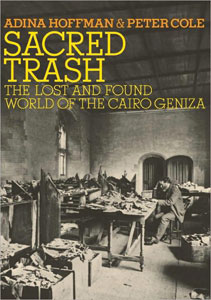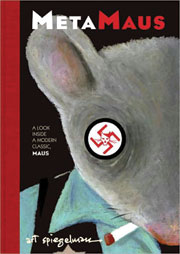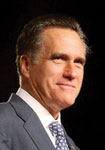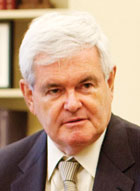As a Jewish-American who grew up partly in Israel, I worry for Israel’s future. Iranian nuclear ambitions, Hamas and Hezbollah missiles, and new efforts to delegitimize Israel’s existence all threaten Israel. And nobody knows how the Arab Spring will shake out.
Israel also faces internal threats to its democracy. Jewish extremists have recently vandalized Israeli army bases in response to government attempts to dismantle illegal settlement outposts, raising questions about the rule of law. Free speech and women’s equality have also been under attack.
Hearing the Republican presidential candidates try to outdo one another in declaring their pro-Israel credentials hasn’t helped me sleep any better at night. In fact, I’ve been lying awake worrying that one of them could get elected and make things far worse for Israel. From Mitt Romney to Rick Santorum, the GOP speakers at the Jewish Republicans forum represent a group of dangerous friends.
The vision they offered echoes the most right wing elements in Israel — further right than Prime Minister Benjamin Netanyahu himself. They spoke as if being pro-Israel means being anti-Palestinian. This is the opposite of what Israel needs from the United States, and the opposite of what is morally right.
If this flawed thinking became America’s foreign policy, it would delight the far right in Israel, but it would be disastrous for Israel in the long run, disastrous for the Palestinians and disastrous for the region.
I’ll limit my critique to Romney and Newt Gingrich. Romney keeps saying that President Obama has thrown Israel under a bus. That would be true only if throwing your friend under a bus meant giving your friend tremendous support, keeping heavy pressure on his biggest enemy (Iran), killing the leaders of extremists who hate your friend (al Qaeda) and occasionally letting your friend know the truth when you have an honest difference of opinion.
The reality, as Israeli military brass have said, is that security and intelligence coordination are better under Obama than any previous U.S. administration. Obama’s tough sanctions against Iran are squeezing its regime and setting up possible international intervention. And Obama’s refocusing of American military priorities away from Iraq and onto al-Qaeda has led to the killing of much of that group’s top leadership.
Finally, the main issue over which Obama has differed with Netanyahu — the continued building in the settlements — is an issue over which huge numbers of Israelis and a large percentage of Jewish-Americans also differ with Netanyahu. (Memo to the GOP: George W. Bush’s administration also publicly condemned Israeli building in East Jerusalem and the West Bank, more than once.)
Listening to Romney accuse Obama of throwing Israel under a bus makes me gag, not only because it’s a lie, but because of what it tells me Romney doesn’t see: namely that Israel is going to miss the bus if Israeli and Palestinian leaders don’t move quickly toward a workable two-state solution.
Smart, even-tempered American leadership is needed to keep Israel and the Palestinians focused on a two-state future. If the two-state solution dies, all that’s left is the one-state option which, for demographic reasons, spells the end of Israel as a Jewish and democratic state.
Gingrich’s statements about the Palestinians being an invented people surpass Romney’s folly. The only people pushing this belief in the Jewish community are on the far, far right (even Netanyahu publicly recognizes the legitimate aspirations of the Palestinian people for statehood). Gingrich also suggested that Palestinians should have relocated to other Arab countries. Gingrich has not only opened painful wounds in the Palestinian community, he has also displayed a kind of rhetorical recklessness that makes one wonder what verbal bombs he would be likely to lob in every foreign policy arena.
Gingrich seems to have forgotten that all of the national identities in the Middle East are relatively recent inventions. Both Palestinian and Israeli national identity developed side by side, especially in the aftermath of World War I, when the Ottoman Empire lost control of the region and the League of Nations awarded to Great Britain stewardship over a territory then called Palestine.
Gingrich says, “There never was a country called Palestine” as if this proves his point. Yet the place that Jews sought to emigrate to in the 1930s and ’40s was a place they called Palestine.
His efforts to discredit the legitimacy of Palestinian identity are just as offensive as Arab or leftist propaganda that discredit the legitimacy of Israel.
Modern Palestinian national identity is, in part, rooted in the history of the last century of map-drawing and nation-creating in the Middle East. That doesn’t make it fake — it just locates it in history, along with all the other nationalities that have emerged in the region in the past 90 years.
The bottom line is that Jews and Arabs both have long historical roots and ties in the Holy Land, and the conflict between Israelis and Palestinians involves relatively new nationalities and ancient religions. Gingrich is playing offensive, dangerous word games in a way that deeply hurts people. And as a Jew, I’m offended by the idea that the right way to be pro-Israel is to be hateful toward Palestinians.
I want the United States to be an enduring ally to Israel, supporting Israel’s security, sharing intelligence and military expertise, and defending Israel against unfair accusations in international forums. I also want the United States to be an honest broker, facilitating negotiations between Israel, the Palestinians and the wider Arab world.
I want the United States to be a friend to Palestine as well as Israel, to support moderate elements within both societies, and to give a push to all of the parties involved when they need one to keep the peace process moving forward.
With little fanfare, Obama has delivered on all fronts. I’m grateful that Obama has stood by Israel in all the ways that matter, and I’m even more grateful that he’s stoically endured a torrent of unfair accusations and lies from his political opponents on Israel.
A final thought: As a rabbi, if I’ve learned anything about the heart of Judaism it is that it values leadership that seeks justice, peace and reconciliation. The ancient rabbis taught that good people seek to turn enemies into friends and see the divine image in every person, even those with whom they have conflict.
These GOP candidates offer a kind of leadership that seeks to exacerbate the hatreds in the Middle East. They opportunistically hope that striking this hard-line posture will garner Jewish votes in that other Promised Land: Florida.
What I look for in a president, as a Jew and a person with deep concern for Israel, is leadership that seeks to strengthen Israel while also reaching out to the Palestinians — leadership that’s committed to brokering a way out of this nightmarish conflict that poisons the lives of my Israeli and Palestinian friends alike.
Like every president before him, Obama has made mistakes in seeking to advance Israeli-Palestinian peace, but he’s been a great friend to Israel, his eyes are on the right prize, and his leadership offers hope.
Rabbi Maurice Harris grew up in both St. Louis and Israel. He was ordained by the Reconstructionist movement and currently works as an instructor at the University of Oregon. His first book,”Moses: A Stranger Among Us,” is due out in 2012 from Cascade Books. This article originally appeared in The Register-Guard of Eugene, Ore.
 In 1896 when Cambridge scholar Rabbi Solomon Schechter, who later became the president of the Jewish Theological Seminary, was shown a fragment of a Hebrew manuscript purchased in Cairo, his world tilted on its axis. The fragment was the first known Hebrew copy of a second century apocryphal text known as Ecclesiasticus, included in the Greek Orthodox and Catholic Bibles, but not in the Jewish canon. This discovery sent Schechter to Egypt where he managed to purchase and carry away a significant portion of the Cairo Geniza.
In 1896 when Cambridge scholar Rabbi Solomon Schechter, who later became the president of the Jewish Theological Seminary, was shown a fragment of a Hebrew manuscript purchased in Cairo, his world tilted on its axis. The fragment was the first known Hebrew copy of a second century apocryphal text known as Ecclesiasticus, included in the Greek Orthodox and Catholic Bibles, but not in the Jewish canon. This discovery sent Schechter to Egypt where he managed to purchase and carry away a significant portion of the Cairo Geniza.


 When Art Spiegelman began publishing “Maus” 25 years ago, reactions from the reading public ranged from praise to approbation. Imagine, telling the story of his father’s experiences in the Holocaust as a comic book and representing Jews as mice, the Poles as pigs, and the Nazis as cats? What was this avant-garde creator of comic literature trying to? In time, particularly after the author won the 1992 Special Pulitzer Prize Award, and numerous other prestigious honors, “Maus” became recognized as a 20th century classic. Spiegelman brought the graphic novel into the forefront of literature where today graphic literature is taken seriously by critics, educators and parents, as well as by readers of all ages.
When Art Spiegelman began publishing “Maus” 25 years ago, reactions from the reading public ranged from praise to approbation. Imagine, telling the story of his father’s experiences in the Holocaust as a comic book and representing Jews as mice, the Poles as pigs, and the Nazis as cats? What was this avant-garde creator of comic literature trying to? In time, particularly after the author won the 1992 Special Pulitzer Prize Award, and numerous other prestigious honors, “Maus” became recognized as a 20th century classic. Spiegelman brought the graphic novel into the forefront of literature where today graphic literature is taken seriously by critics, educators and parents, as well as by readers of all ages. By the time you read this, the Iowa caucus and its Republican winner will be old news. On the national scene, the record shows that both leading Republican presidential candidates, Mitt Romney and Newt Gingrich, appreciate Israel as an ally and both will be better for Israel than Barack Obama.
By the time you read this, the Iowa caucus and its Republican winner will be old news. On the national scene, the record shows that both leading Republican presidential candidates, Mitt Romney and Newt Gingrich, appreciate Israel as an ally and both will be better for Israel than Barack Obama. As a result, Al Qaeda and other Jihadists have strengthened their hold in chaotic Sinai and they and Hamas have been able to import advanced anti-tank and anti-aircraft rockets and missiles that were looted from civil war ravaged countries such as Libya and Yemen. Consequently, Hamas has amassed more than 10,000 rockets in its arsenal including some that can reach the outskirts of Tel Aviv and portable, shoulder fired, anti- aircraft missiles called Manpads which can shoot down a civilian passenger plane.
As a result, Al Qaeda and other Jihadists have strengthened their hold in chaotic Sinai and they and Hamas have been able to import advanced anti-tank and anti-aircraft rockets and missiles that were looted from civil war ravaged countries such as Libya and Yemen. Consequently, Hamas has amassed more than 10,000 rockets in its arsenal including some that can reach the outskirts of Tel Aviv and portable, shoulder fired, anti- aircraft missiles called Manpads which can shoot down a civilian passenger plane.